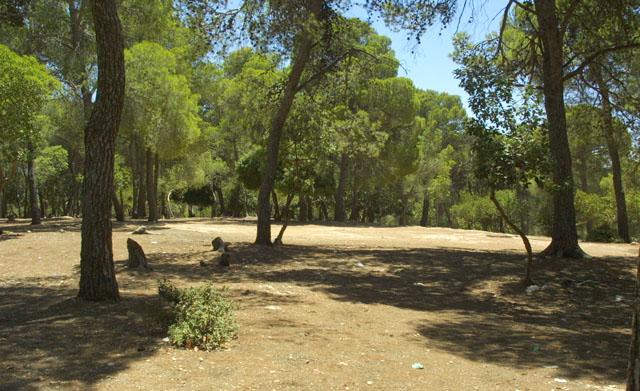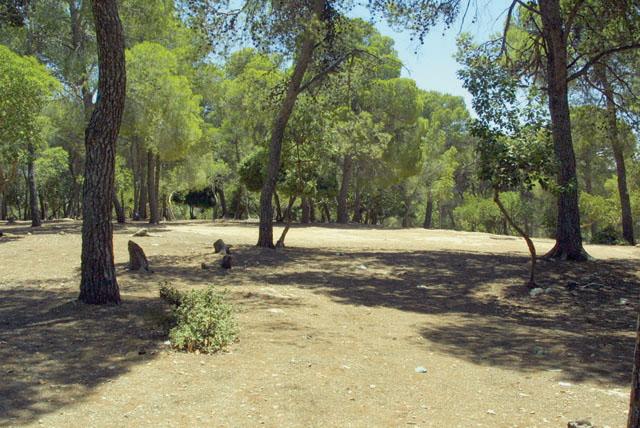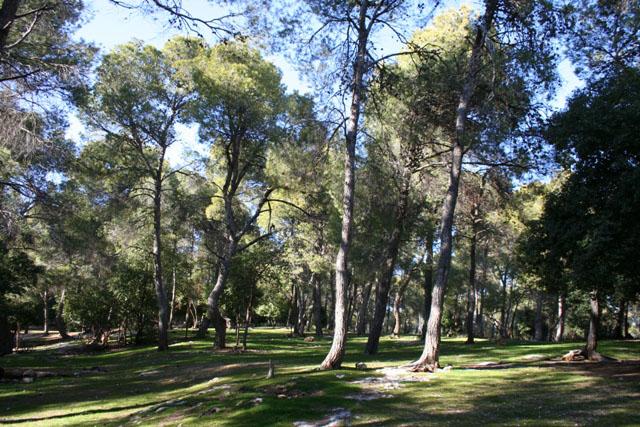You are here
Forest fire destroys 200 trees in Dibbeen
By Hana Namrouqa - May 20,2014 - Last updated at May 20,2014

AMMAN — Forty dunums of trees in the Dibbeen Forest Reserve were destroyed in a wildfire on Monday, the reserve’s director, Bashir Ayasrah, said on Tuesday.
The fire started at around 3:30pm and dozens of Jerash Civil Defence Department (CDD) firefighters, Rangers from the Royal Society for the Conservation of Nature (RSCN) and the Jerash Agriculture Department extinguished the blaze by 7:30pm, Ayasrah told The Jordan Times.
“A report on the damages shows that 200 trees were burned, including Aleppo pines, oaks and maple trees,” he added.
The fire was most likely man-made, according to Ayasrah, who underscored that it is not known whether the fire was a result of a visitor’s recklessness or an act of arson.
“The winds on Monday afternoon helped fan the flames, in addition to the fact that hundreds of thousands of broken dry branches covered the forest bed following last December’s snowstorm,” he pointed out.
Ayasrah again called on the authorities to organise a national campaign to remove the fallen branches, which are not only blocking the forest’s inner roads, but also serve as fuel for more wildfires during the summer.
“The trees are very old; the average age of the reserve’s trees is 130 years. Every tree has its own environmental significance and once burned, it cannot be replaced,” the conservationist said.
The Dibbeen Forest Reserve represents the world’s last remaining southeastern community of Aleppo pines.
The CDD said its personnel had to use special equipment and vehicles due to the rough topography of Dibbeen and its dense green cover.
“The cause of the fire is under investigation,” a CDD source noted.
Monday’s fire is the second wildfire in Dibbeen in less than a month; on April 28, 184 centennial trees planted over a 12-dunum area were damaged.
Situated in Jerash Governorate, 48km north of Amman, the forest reserve was established in 2004 with the aim of protecting Aleppo pines, particularly as Dibbeen is the driest part of the world in which Aleppo pines naturally grow, with an average rainfall of around 400mm per year, according to the RSCN.
The Dibbeen forest is home to at least 17 threatened species, including the Persian squirrel, in addition to over a quarter of the butterfly species that exist in the Kingdom. It extends over 8.5 square kilometres of mountainous topography, rich with pine and oak trees.
Related Articles
Twelve dunums of forest trees in the Dibbeen Forest Reserve were destroyed in a wildfire on Monday, the reserve’s director, Bashir Ayasrah, said on Tuesday.
More than 400 trees in the Dibbeen Forest Reserve were destroyed in a wildfire on Friday, the reserve’s director, Bashir Ayasrah, said on Saturday.
Dibbeen Forest Reserve is witnessing more wildfires this season, with over 1,500 trees destroyed since the start of spring, according to a conservationist.



















